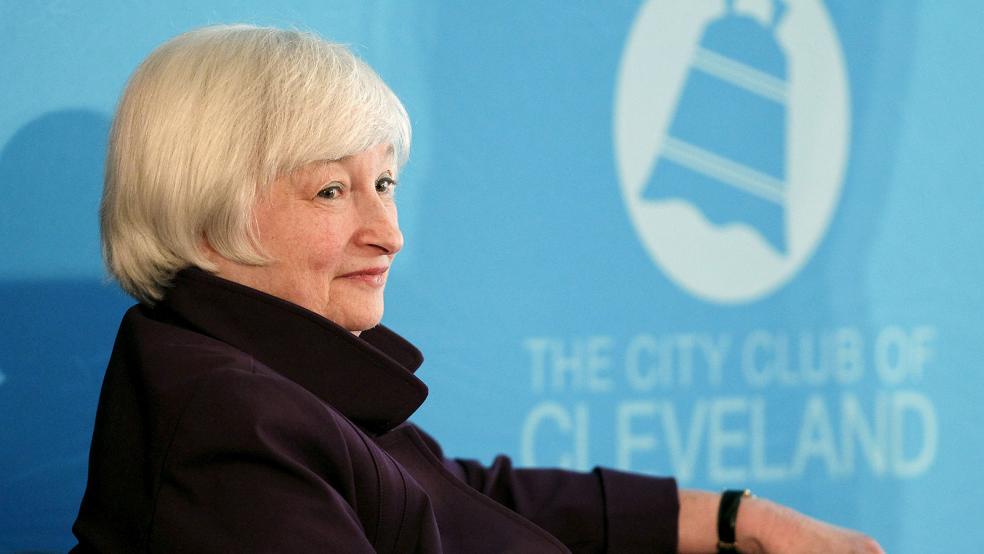It's pretty clear by now: The theme of the economic expansion of the last few years, and the powerful bull run in global markets, has been the aggressive effort by central banks to paper over structural problems with the promise of more cheap money.
Skeptics were brushed aside by those proselytizing the true faith that central bank purchase programs — from ETF purchases by the Bank of Japan to the Swiss National Bank’s accumulation of Apple (AAPL) stock to the European Central Bank's purchases of Spanish and Italian sovereign debt — would be the salve to solve all ills.
Related: The Troubling Truth Revealed by the Stock Market’s Nosedive
It worked for a while, but merely treated the global economy’s symptoms, not the underlying structural sickness. The year-long slide in commodity prices, persistently low inflation and the dramatic plunge in China's stock market — despite increasingly desperate efforts by Beijing to reverse the slide — have stripped away the central bankers’ veil of omnipotence.
Recent market turmoil has many wondering: "Have the central bankers lost control?" It looks like they may have. The atmospherics don't look promising. Calm confidence has given way to frantic reactions.
Institutions are working at cross purposes, with the Federal Reserve desiring to move forward with its first interest rate hike since 2006 later this month while China warns of the consequences, devalues its currency and is forced to liquidate Treasury bonds to raise the funds needed to stabilize foreign exchange trading. A lack of clarity is making traders nervous.
Related: Stocks Are Sending a Recession Warning
Federal Reserve Chair Janet Yellen seems confused on how to proceed, trying to extricate herself from seven years of emergency stimulus without collapsing the house of cards her predecessor built — an increasingly impossible task. A delay only further raises the stakes and would damage the Fed's credibility. China's T-bond sales are a new wrinkle, putting upward pressure on long-term U.S. interest rates despite stock market losses.
Just consider this list of Fed-related headlines collected by the folks at Yardeni Research, revealing disunity in Yellen's ranks for all to see:
"Fed Appears to Hold Line on Rate Plan" (link)
"Fed at Jackson Hole: Gearing Up to Hike Amidst Rocky Terrain" (link)
"China turmoil divides Fed over inflation" (link)
"Stanley Fischer expects US inflation to head higher" (link)
"Fed Officials Don’t Seem in the Mood to Wait for September" (link)
"Fed hawks acknowledge market turmoil may delay rate hike" (link)
"Fed Officials on the Fence for September Rate Move" (link)
"Fischer Praises Economy, Straddles FOMC Liftoff Date Camps" (link)
"Stocks fly after Fed official cools September rate hike talk" (link)
"Soothing Talk by Federal Reserve Official Buoys Wall Street" (link)
"Market Turmoil Prompts New Speculation on the Fed’s Timetable" (link)
China faces its own gargantuan task as it deals with the so-called "Impossible Trinity," explained by Bank of America Merrill Lynch's David Woo as "the notion that no country can have a fixed exchange rate, enjoy independent monetary policy and have an open capital account at the same time."
Related: Mark Cuban on the Lesson Investors Can Learn From China
The takeaway is that China cannot lower interest rates and defend its currency at the same time without imposing capital controls — which, in turn, would jeopardize its desire to make the yuan a global benchmark and could further erode confidence at a time when authorities have threatened jail time for those betting against Chinese stocks.
In Woo's view, "the combination of China's need to ease monetary policy and the Fed’s desire to hike rates represents the single greatest source of volatility for financial markets for the rest of the year."
Given BAML's view that a September rate hike is still the most likely decision from Yellen on Sept. 17, Woo's sees three possible outcomes from China.
The least likely, in his view, is a continuation of the status quo, which would keep the pressure on Chinese stocks as investors worry about the health of China's economy. Commodity prices would keep falling, increasing the deflationary impulse that is complicating the Fed's exit strategy. And T-bond sales would likely continue, steepening the U.S. yield curve by pushing up long-term rates.
Related: As Stocks Tank, Trump Warns China Could ‘Bring Us Down’
The second scenario would be a tightening of capital controls to limit cash outflows from people abandoning the weakening yuan.
The third and most likely scenario, in Woo's mind, would be for Beijing to allow the yuan to fall more sharply, fueling concerns about an outright currency war and possibly triggering competitive devaluations from other emerging market economies in the region. Commodity prices would weaken (on concerns over demand from China) providing a "further global disinflationary shock."
If that happened, the ball would bounce back to Yellen, who would then face an even more troubling set of circumstances toward the end of the year: Cratering energy prices (which would hit corporate earnings), market volatility, a rising dollar (further disinflationary pressure) and rising long-term interest rates (hitting housing, auto sales and GDP growth generally).
Related: Why China’s Slowdown Will Lead to Sustainable Growth
The temptation will be to turn the spigots of easy money back on to reverse the dollar's rise, boost growth and hopefully lift commodities on the hopes of resurgence in GDP growth. But the wildcard would be bond-market inflation expectations; if they rise, long-term yields could just keep pushing higher and tighten monetary policy inadvertently.
The situation has become intractable while the consequences of a misstep hang over the heads of regular Americans like the Sword of Damocles. Yellen has less than two weeks to solve the puzzle. My guess: She punts to 2016 and the tension builds even more.






